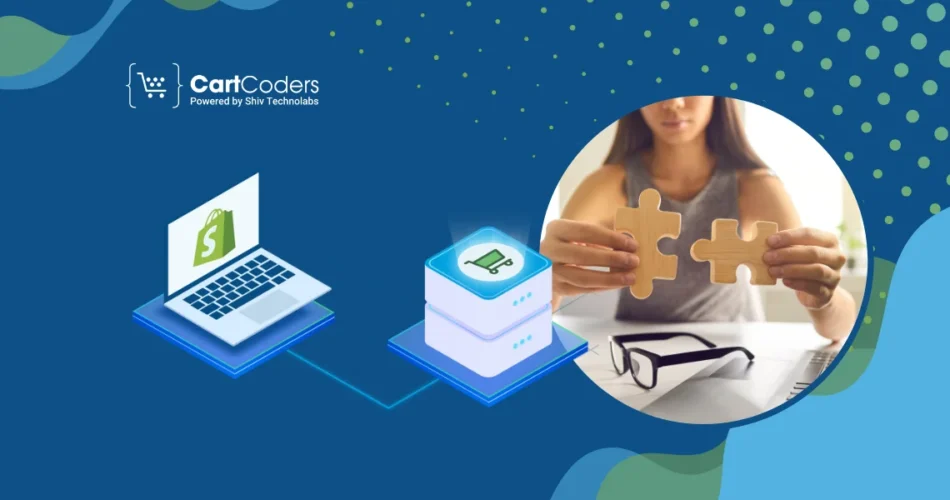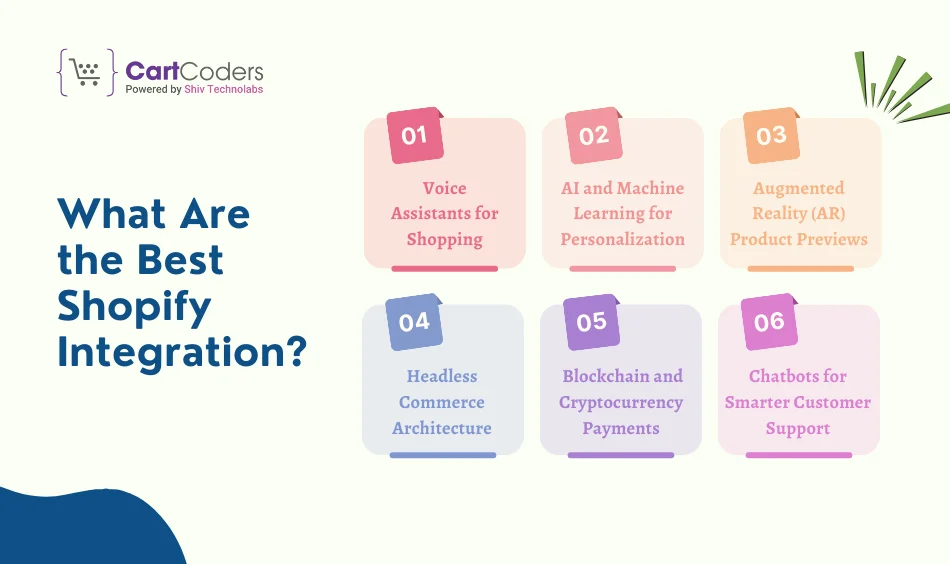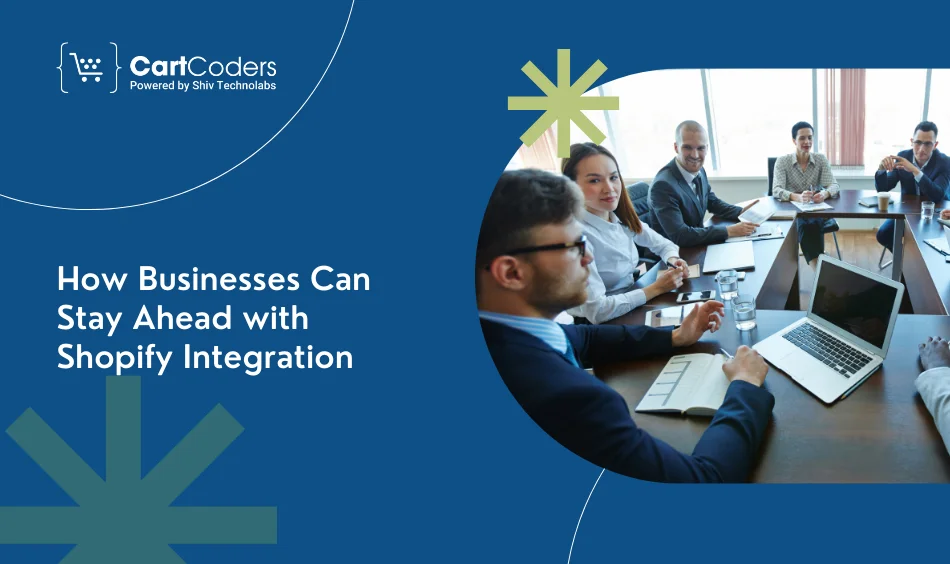Custom Engagement Solutions
Unlock tailored solutions with a free, no-obligation strategy session.
Expert Developers & Engineers on Demand
Scale Your Team with Skilled IT Professionals
Expert Guidance for Digital Transformation

Running a Shopify store today is very different from what it was a few years ago. Shoppers expect faster responses, personalized experiences, and innovative ways to interact with products before they buy.
At the same time, businesses need smarter systems that cut down manual work and connect data across sales, marketing, and customer service. This is where Shopify integrations step in.
The right integrations can completely transform how an online store operates. From artificial intelligence tools that predict customer behavior to blockchain-powered payments that bring transparency to transactions, Shopify integrations are shaping the future of eCommerce.
In 2025, it’s no longer about whether to adopt these tools; it’s about choosing the ones that make your store more flexible, future-ready, and capable of winning customer trust.
In this blog, we’ll highlight the best Shopify integrations for 2025, explain how they improve store performance, and show why adopting them early can give your business a strong advantage.
Running a Shopify store is no longer just about listing products and processing orders. To stay competitive, you need tools that:
With the right integrations, businesses can run smarter operations, reach new customers, and prepare for the future of eCommerce.

Shopify integrations are redefining how businesses sell online. Instead of functioning as add-ons, they now drive personalized shopping, operational efficiency, and secure transactions.
Below are the most important integrations every Shopify merchant should know about in 2025.
Voice commerce is projected to surpass $30 billion by 2026. Shopify’s voice assistant integrations let customers:
For tech-savvy customers, this means faster, friction-free shopping. For merchants, it means tapping into a growing user base of voice device owners.
AI-driven Shopify integrations are transforming how stores connect with customers. These tools:
Example: AI-powered recommendations increase conversion rates by up to 20%, according to McKinsey.
One of Shopify’s most powerful features is its AR toolkit, allowing merchants to upload 3D product models. Benefits include:
By 2027, the AR in the retail market is expected to hit $17.8 billion, making this one of the most valuable Shopify app integrations.
Headless Shopify integrations decouple the front-end design from the back-end system. This allows businesses to:
For brands looking for flexibility, headless commerce is a future-proof choice.
Blockchain-powered integrations in Shopify are making transactions faster, safer, and borderless. Advantages include:
This isn’t just a trend, it’s a long-term shift toward secure, decentralized commerce.
Chatbots aren’t new, but their impact in Shopify is bigger than ever. AI-powered bots now handle:
By 2030, chatbots are expected to save businesses $80 billion annually in customer support costs.
Also Read: How to Choose the Right Shopify Integration Partner?
Shopify integrations are already transforming how businesses sell online, but the next few years will bring even bigger changes.
Here are the most important directions where eCommerce integrations are heading.
Artificial intelligence and machine learning will move beyond simple product suggestions. Shopify integrations will soon deliver real-time personalization for every customer, dynamic pricing, content tailored to browsing history, and predictive recommendations that evolve with each visit.
While blockchain is already streamlining payments, its role in supply chain transparency is expected to grow. Future Shopify integrations may allow customers to trace the origin of products, verify authenticity, and check for ethical sourcing.
As voice-enabled devices continue to rise, voice commerce will become a natural extension of online shopping. Future Shopify integrations will allow shoppers to reorder frequently bought items, apply promo codes, and check order updates, all through voice assistants.
Social media platforms are becoming powerful sales channels. Shopify integrations with Instagram, TikTok, and Facebook will move beyond simple catalog syncing to include shoppable stories, live-stream selling, and instant checkout inside apps.

Adopting the latest integrations is only useful when they translate into measurable results for your business.
Shopify offers multiple ways to improve daily operations, strengthen customer relationships, and prepare for long-term growth.
These benefits become clear when you look at how specific integrations work in practice.
These integrations do more than add convenience—they create a foundation for sustainable growth. By choosing the right tools and connecting them effectively with Shopify, businesses can compete more effectively and deliver experiences that customers value.
Integrations only create value when they are implemented correctly. Many businesses struggle to choose the right tools or align them with their existing workflows.
That’s where working with a trusted Shopify development partner makes a difference. At CartCoders, we help merchants turn integration challenges into growth opportunities.
With the right integrations in place, your Shopify store can do more than just sell products—it can deliver memorable customer experiences and long-term growth. CartCoders is here to make that possible.
Picture the store you want to run in 2025. A visitor lands; the page already knows what might fit. They drop a 3D product into their room, ask a quick question, get an instant answer, and pay without friction. None of this is guesswork—it’s integrations doing quiet, reliable work in the background.
Pick one growth lever per quarter and make it count: AI for smarter offers, AR for buyer confidence, headless for design freedom and speed, blockchain payments for trust, chatbots for fast support. Ship it, track a single metric tied to revenue or cost, then keep only what compounds.
You don’t need every tool—just the right sequence. Build the stack that serves your customers first, and the numbers follow. If you want a partner to stitch it together without drama, contact CartCoders.
Projects delivered in 15+ industries.
95% retention rate, building lasting partnerships.
Serving clients across 25+ countries.
60+ pros | 10+ years of experience.